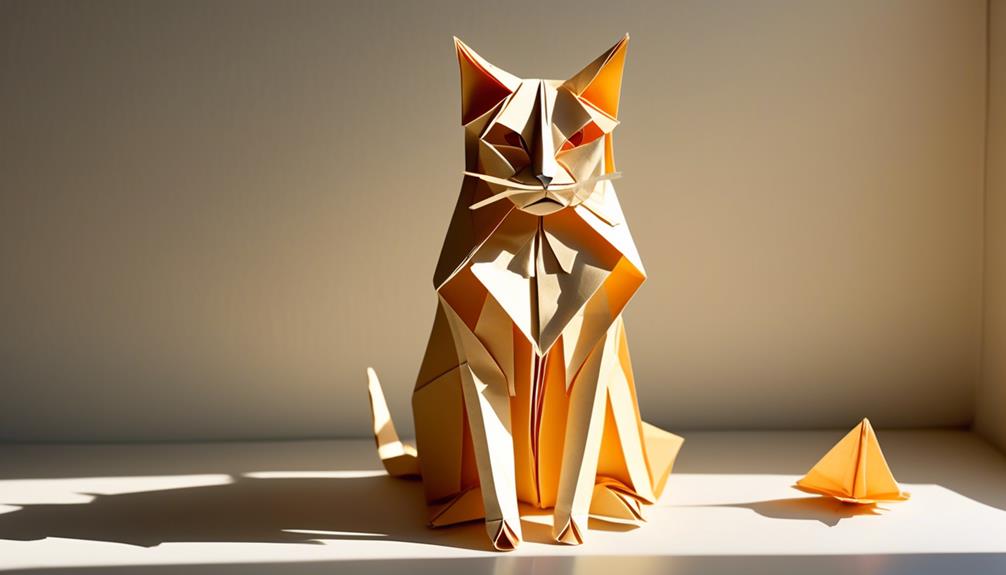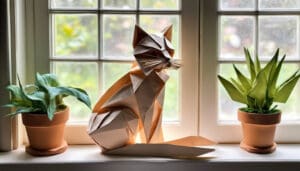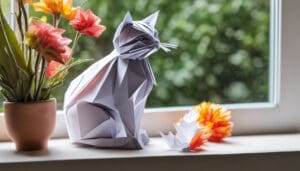As you lovingly look after your senior cat, being aware of subtle signs of struggle is essential when it comes to dehydration—a condition that can quietly compromise their quality of life.
The five best indicators of dehydration in senior cats are not always obvious, but they’re crucial clues that can help you catch and counteract this concern early on. You’ll want to watch for telltale signs such as listless lethargy, diminished desire for food and water, and the more subtle shifts like the loss of skin elasticity or changes in their eyes and mouth.
These symptoms may whisper rather than shout, demanding a vigilant eye and a tender touch to interpret. It’s your compassion and quick action that can pivot their path back to health.
Key Takeaways
- Skin elasticity is an important indicator of hydration levels in cats, and reduced elasticity in senior cats may require alternative indicators.
- Dry gums and mouth, such as sticky gums and dull appearance, can be signs of dehydration in cats, which can be caused by decreased water intake.
- Sunken eyes and lack of usual luster in the eyes may indicate dehydration in cats, and prompt action and assessment of other symptoms are necessary.
- Lethargy and weakness in cats can be a noticeable drop in energy and may be a symptom of dehydration, which can occur when a cat doesn’t drink enough water or due to underlying health issues or medication side effects.
Decreased Skin Elasticity
Gently lifting the skin on your senior cat’s shoulder blades, you’ll notice that it should snap back swiftly if they’re well-hydrated, but a slower return may signal dehydration. The skin’s ability to fall back into place is a testament to your cat’s hydration levels, and this simple act of monitoring can speak volumes about their well-being.
As you care for your older cats, it’s essential to be vigilant for signs of dehydration. While a quick snap back of the skin is reassuring, any hesitance in this elastic response warrants your attention. Don’t overlook these symptoms of dehydration, as they can quickly escalate from mild to severe.
Should you observe that your cat’s skin falls back sluggishly, it’s crucial to understand that this is more than just a quirk of age. It’s a clear sign that your cat requires assistance. Remember, dehydration in cats can be a stealthy adversary, creeping in and taking hold before you’re fully aware.
In cases where the skin pinch test is less reliable due to reduced skin elasticity in senior cats, it’s important to stay attuned to other indicators. Ensure your vigilant eyes and tender hands are always ready to serve your cat’s needs, keeping severe dehydration at bay.
Dry Gums and Mouth
If your senior cat’s gums feel dry, it likely means they are not drinking enough water. It’s important to pay attention to small health changes in your cat, especially signs that they are dehydrated. If your cat is dehydrated, their once supple gums may now feel dry and tacky, a sign that can’t be ignored.
To ensure you’re well-informed, here’s what to look for:
- Sticky Gums: When dehydration in your cat occurs, their gums lose moisture, becoming sticky to the touch.
- Less Shine: Healthy cats gums usually have a shiny appearance. A dehydrated cat’s gums may appear dull.
- Increased Thirst: If you notice your cat isn’t drinking enough water, their risk of dehydration rises.
- Mouth Dryness: A dry mouth, in general, is a common sign your cat may need more fluids.
Sunken Eyes and Dullness
Moving beyond the texture of your senior cat’s gums, another clear sign of dehydration to be mindful of is the change in their eyes, which may appear sunken and lack their usual luster. The sparkle that once lit up their gaze may give way to a certain dullness, a subtle but significant cue that your beloved cat isn’t at their best. When you notice these changes, it’s not just the dehydration itself that should concern you, but also the possibility of severe health problems lurking beneath the surface.
Sunken eyes in senior cats can indicate a pressing need for attention, and you’ll want to act with both urgency and care. It’s crucial to check for other symptoms that may accompany the dehydration and assess the overall wellbeing of your cat. Remember, these visual clues are your prompt to serve the needs of your cat with kindness and to seek the guidance of a veterinarian.
Addressing dehydration early can make all the difference, and identifying the underlying cause is key to preventing further complications. Don’t hesitate to consult your vet when your cat’s once-vivid eyes seem dehydrated and dull. They depend on your vigilance to keep them healthy and hydrated through their golden years.
Lethargy and Weakness
When your senior cat starts to display a noticeable drop in energy, becoming lethargic or weak, it’s often a telltale sign that they may be suffering from dehydration. This lack of energy can be heartbreaking to witness, as it’s not just about your cat feeling a bit tired—it can be a symptom of a serious underlying issue. Dehydration happens when your cat doesn’t drink enough water to maintain healthy bodily functions. It’s crucial to rehydrate your cat and determine the underlying cause of their condition.
Here are some reasons that might cause your cat to become dehydrated:
- Reduced Water Intake: Sometimes, senior cats may not feel inclined to drink sufficient water, leading to dehydration.
- Overheating: In warmer climates or during hot weather, your cat can quickly become dehydrated if not adequately cooled.
- Underlying Health Issues: Illnesses such as kidney disease or diabetes can lead to increased water loss.
- Medication Side Effects: Certain medications may cause increased urination or reduced thirst.
If you notice signs of lethargy and weakness, it’s vital to act promptly. Cats suffering from severe dehydration require immediate veterinary care to address the issue compassionately and effectively. Remember, you’re their best advocate for a healthy and vibrant life.
Changes in Urination Behavior
Observing your senior cat’s urination patterns can offer critical clues to their hydration status and overall health. Changes in urination behavior, such as increased frequency or straining, are often signs of dehydration or kidney disease. It’s essential to be mindful of these subtle shifts, as they can indicate underlying causes that need attention.
| Urination Behavior | Possible Indication |
|---|---|
| Increased Frequency | Dehydration or Kidney Disease |
| Straining/Difficulty | Urinary Tract Issue or Dehydration |
| Change in Color/Odor | Possible Dehydration or Illness |
If you notice any changes in urination, it’s important to schedule an appointment with your vet right away. Dehydration can lead to serious complications in senior cats, whose bodies are less resilient to water loss. Common causes of dehydration include insufficient water intake, overheating, or underlying illness.
Should you detect incontinence or a lack of grooming, these too can be signs of discomfort or declining health. Your gentle observation and swift action can make all the difference. Remember, you’re not just looking after a pet; you’re nurturing a beloved family member whose well-being relies on your care and vigilance.
Frequently Asked Questions
How Do You Know if an Old Cat Is Dehydrated?
You don’t need to be a cat whisperer to notice dehydration signs in your elderly cat. Look out for tiredness, sunken eyes, and dry gums. Also, if you pinch their skin gently and it doesn’t return to its original state quickly, it’s a clear sign of dehydration.
How Do I Check My Cat’s Hydration Status?
To check your cat’s hydration, gently lift the skin on their neck and see if it snaps back quickly. Feel their gums; they should be moist. Observe their eyes and behavior for changes.
What Is a Good Indicator of Dehydration?
A good indicator of dehydration is when you’re feeling thirsty; however, dry skin, fatigue, and dark urine also signal your body’s need for more water. Always listen to what your body’s telling you.
How Can I Rehydrate My Cat Fast?
Mix water with their favorite broth, place ice cubes in their dish, and offer wet food. They’ll love it and you’ll help them stay healthy and hydrated.




